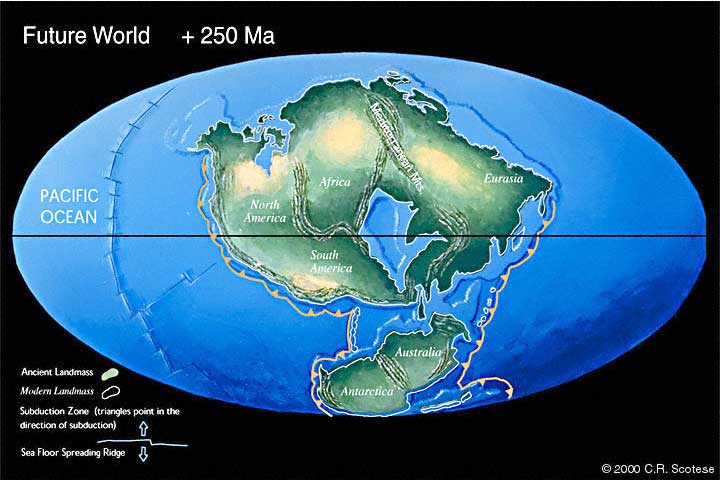A new study predicted a bleak future for humanity, but it won’t happen in our lifetimes.
Humans will go extinct on Earth in 250 million years, according to experts from the University of Bristol.
The study suggests that our planet will experience a mass extinction event, resulting in the eradication of all mammals, which humans are a subspecies of.
If any lifeforms manage to survive at that time, they would have to endure scorching temperatures ranging from 104°F to 158°F.
However, these calculations do not account for the greenhouse gases emitted by burning fossil fuels and other human-caused sources, so it’s possible we’ll all die sooner.
New paper alert🎉 "Climate extremes likely to drive land mammal extinction during next supercontinent assembly" in @NatureGeosci . w/ @EuniceLoClimate , Paul Valdes, @JonathanRBuzan , @bjwmills , Andrew Meredith, @chris_scotese , @StellarPlanet 1/nhttps://t.co/aKsWJxbrln
— Alex Farnsworth🌻 (@Climate_AlexF) September 25, 2023
The last mass extinction occurred around 66 million years ago, leading to the extinction of dinosaurs after a catastrophic collision with a massive space rock.
Dr. Alexander Farnsworth, senior research associate at the University of Bristol’s School of Geographical Sciences, who led the study, said that “The outlook in the distant future appears very bleak.”
Farnsworth noted that carbon dioxide levels would double their current levels, and the mammal populations of the world would perish, because humans and animals alike would be unable to cool their body temperatures through sweating.
Even worse, in 250 million years, Earth’s continents will remerge together to create a super-continent called Pangea Ultima.
This merging process will lead to Earth’s land taking on a doughnut-like shape that would push the Atlantic ocean into the middle and be surrounded by the Pacific ocean.
Pangea Ultima is just projection based at this stage, but scientists are confident that Earth’s continents will gradually coalesce in some giant mass that is unable to sustain life.
While it forms, volcanic eruptions exacerbated by Earth’s shifting crust will spew huge amounts of carbon dioxide into the air, and the sun, which is gradually brightening would make the planet’s surface even hotter.
“The newly-emerged supercontinent would effectively create a triple whammy, comprising the continentality effect, hotter sun and more CO2 in the atmosphere, of increasing heat for much of the planet,” Farnsworth noted.
“The result is a mostly hostile environment devoid of food and water sources for mammals.”
After all their modeling, which “assumes that humans will stop burning fossil fuels,” as they didn’t factor in current emissions into the study, only 8 to 16 percent of the super continent will be habitable for mammals.
It will be so hot and humid were scientists believe that Pangea Ultima will form, Farnsworth said that we only have one shot to save humanity.
“[Survival] will all depend on whether we can escape this planet,” he told the Daily Mail.








